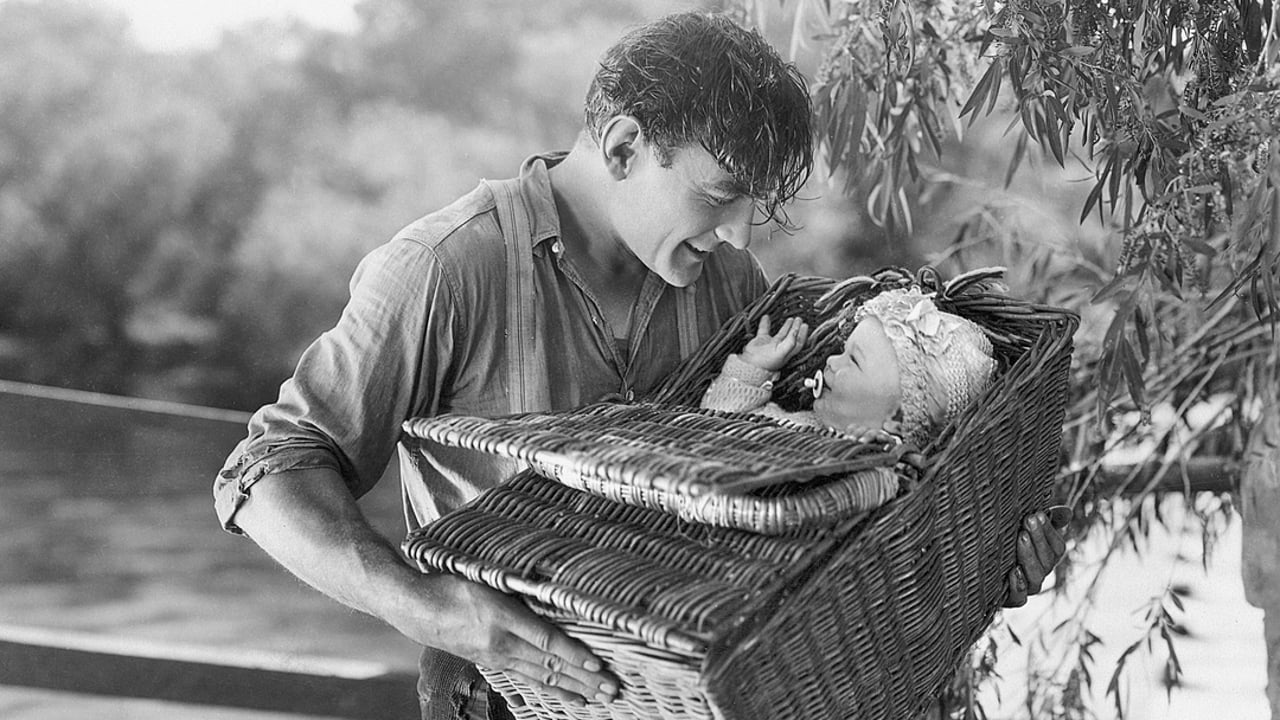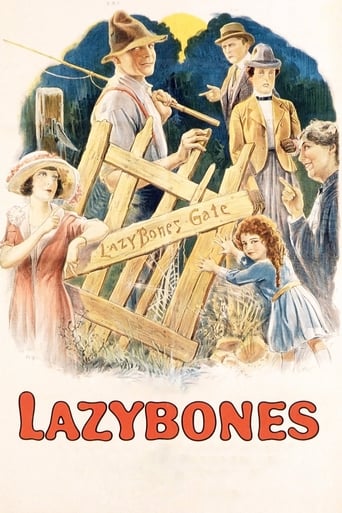

It was OK. I don't see why everyone loves it so much. It wasn't very smart or deep or well-directed.
... View MoreIf you're interested in the topic at hand, you should just watch it and judge yourself because the reviews have gone very biased by people that didn't even watch it and just hate (or love) the creator. I liked it, it was well written, narrated, and directed and it was about a topic that interests me.
... View MoreThe film never slows down or bores, plunging from one harrowing sequence to the next.
... View MoreThe movie really just wants to entertain people.
... View MoreEven in this early lyrical rural romance, a charming reworking of "Silas Marner", there are many Borzage magical moments. Being at the same studio (Fox) as Murnau, Borzage was often overshadowed by him and his movies were often dismissed as candy box romances by the critics. A reassessment of Borzage's films has shown his harmony of narrative and emotional sincerity were carefully planned and not just accidental.Steve Tuttle (Buck Jones) is the local "Lazybones" - "as slow as molasses in winter" - ridiculed by all the town, except his mother. He loves and is beloved by Agnes (Eva Novak) but her mother (Emily Fitzroy, always the villain) is determined that he shall not be part of their family. One day, while fishing, he rescues a young woman who has thrown herself off the bridge. It is Ruth (Zasu Pitts), Agnes's sister - she is returning home, at her mother's command, so she can marry the local "Beau Brummell", but she is bringing her baby, the result of her marriage to a seaman who has been drowned in an accident. Steve assures Ruth he will take the child home and bring her up and Ruth can return in a few days.Time marches on. Ruth marries Elmer and Agnes fades from the scene - she is just not emotionally and mentally strong enough to stand up to her mother and after telling Steve that he should put the baby in a home, disappears until the very end of the movie. Zasu Pitts gives the film some much needed intensity and her's is easily the best performance in the movie. There is a very poignant scene where Ruth is going by Steve's house in a carriage, Steve holds up baby Kit and waves and Ruth, hesitantly and secretly, waves back. Virginia Marshall, who plays Kit as a child also brings pathos to her role - especially in the tracking shot that follows Kit on her way home from school, being taunted by the other children. Ruth escapes from her husband's ceaseless humbug and comforts the child.War comes and to everyone's surprise, Steve returns a hero. I also found it disturbing and the one false note of the film, that Steve should return with more than fatherly feelings for the now grown up Kit. Fortunately Kit (played by the chocolate box pretty Madge Bellamy) is able to dispel them before it causes embarrassment - she has found love already, with mechanic Dick Ritchie ( a young Leslie Fenton) who has already fixed "that darn gate"!!! I also thought it ended abruptly. A small, harrowing scene where Agne's learns the truth about Kit's parentage but because she is completely under her mother's domination, she will have to keep it a secret forever and a closing scene showing "Lazybones" fishing - indicating that life goes on.Highly, Highly Recommended.
... View MoreBuck Jones is a huge surprise in this 1925 silent, playing a rural man who lives with his mother (Edythe Chapman) and is known as Lazybones. Frank Borzage's delicate film (beautifully shot) shows the true of a man no one really knows. He sits around and fishes, neglecting chores and a local girl (Jane Novak) who is in love with him, much to the relief of her battle-axe mother (Emily Fitzroy).The one day, her sister (Zasu Pitts) returns from the city, where she was married to a sailor who has been lost at sea. She also has a baby. Knowing that no one in small-town America will believe she had been married, she sets down the baby and jumps into the river. Lazybones sees her and jumps in to save her. She tells him her story and they concoct a plan whereby he will claim to have found the baby and she can return home alone in a few days.Of course the town turns on him and the baby girl, but Lazybones holds to his promise while Pitts is consigned to marry a local jerk. Even the sister turns on Lazybones and says she'll never speak to him again. The years pass.As World War I approached, Lazybones goes off the war while the baby Kit (Madge Bellamy) is now about 15. Lazybones inadvertently becomes a war hero and returns to a town that has still never quite forgiven him. Kit now has a boyfriend (Leslie Fenton). Lazybones realizes he is in love with Kit and just as quickly realizes how many of their lives have changed over the years.Jones is terrific. He usually starred in Westerns and for a time rivaled William S. Hart in popularity. Here he has a chance at a part that requires a delicate mix of drama and comedy. Zasu Pitts is fantastic as the tragic Ruth. Best know for her fluttery old maids, here she turns in a solid dramatic performance. Also good are Bellamy, Novak, and Chapman. A special word is needed for Fitzroy, who along with Josephine Crowell, ranks among the major battle-axes of the silent era.A final word on Buck Jones. He was still going strong in 1942, starring in B Westerns when he was caught in the famous Coconut Grove fire in Boston. He died two days later.
... View MoreMy first entry in the sudden Borzage/Murnau double-quest I've been thrust into by receiving the behemoth collection that bears their names was this forgotten 1925 melodrama with the title that sounds like a slapstick comedy: Frank Borzage's Lazybones.The film concerns a dude named Steve (Buck Jones) that just lays around all the time, and his one activity is fishing, which involves him laying around all the time. Needless to say, he has acquired the nickname "Lazybones". He's sweet on a girl named Agnes (Jane Novak), whose evil mother (Emily Fitzroy) forbids her to go with him, and has arranged a marriage for her abroad student daughter Ruth (Zasu Pitts) with "the local Beau Brummel", Elmer Ballister (William Bailey). But while doin' jacksh-t, Steve runs into Ruth upon her return, with an infant and a story: she married a seaman in secret because she knew her mother wouldn't approve, she had a child, and then he went off to sea, never to return. Steve offers to claim he found the baby in the reeds until Ruth's ready to tell her mother, but when Ruth's mother whips her and threatens to send the child away if Ruth tells anyone, Steve ends up keeping her and raising her himself. From there, the film fast-forwards episodically to the child, named Kit (Virginia Marshall, later Madge Bellamy) as a young girl, as a teenager, and as a young woman in 1917, and Steve finally has to do something, and gets shipped off to war.The film is a fairly dour affair all around, no one is content, no one is satisfied, no one is happy, and it pretty much stays that way. Their one recurring gag, how every single person that enter's Steve's house, from grandmother on down to adopted daughter, runs into the stubborn gate and yells, "Darn that gate!", isn't really that funny, but it's one of the few moments of lightheartedness in the entire piece, and even then, it's used as a heartbreaking mile-marker motif later in the film when he gets sent off to war. Actually, one into the trenches of Europe, the film turns to outright slapstick as through dumb luck, he becomes a national hero.But the film takes a weird turn once he returns home from the war that made me sort of lose all sympathy for Steve and sort of soured the dramatic weight of the film: he falls in love with his adopted daughter. Despite the fact that he has raised this girl from the time she was still forming kneecaps, and he has been her singular parental guardian, and yet we're supposed to feel sad when he comes back for war and wants to do things that, had they been related, would have been illegal and are taboo to depict, even now? No thanks. I'm glad this collection is mostly Borzage (only two of the twelve films in the collection are from Murnau), because of the two I've seen (this and Moonrise, I've been pretty much underwhelmed.{Grade: 6/10 (C+) / #6 (of 6) of 1925}
... View MoreAt his peak in the 1930s and 1940s, to watch Frank Borzage with pleasure, you have to believe in love as something more than a variety of lust. It can be transformative when living (as in the terrific and subtle A MAN'S CASTLE) and, in the hands of performers like Janet Gaynor and Charles Farrell, can even overcome death -- although I should caution the observant film watcher that the enormous power of those movies lies in the unequaled abilities of Miss Gaynor, who was a truly great film actor; Mr. Farrell was a good one and gave many a fine performance, but it finally occurred to the people who made the movies that no one would go out of his way to see Mr. Farrell on his own.Although the influence of Murnau on Borzage is usually cited as key, looking at this movie, made three years before SUNRISE, we can see that the essence of Borzage is already in place: the small figures against the enormous vistas, the seemingly inevitable workings-out of the plot but most especially the way people look at each other: Buck Jones never gave a better performance than as the title character of this piece. As another reviewer has put it, it's all in the eyes.Visually, Borzage has not settled on his signature look, a gauzy effect achieved, according to legend, by filming through a pair of sheer white hose that softened the image and forced the audience to see what was in the viewer's heart. Instead, the print that was used in the Borzage/Murnau at Fox set seems both a little flat -- perhaps from a safety-stock print -- and possessed of a bit of dazzle on the right side of white objects. Perhaps this effect was intended. Perhaps not. In either case, this is a most welcome addition to my collection of silent movies.
... View More